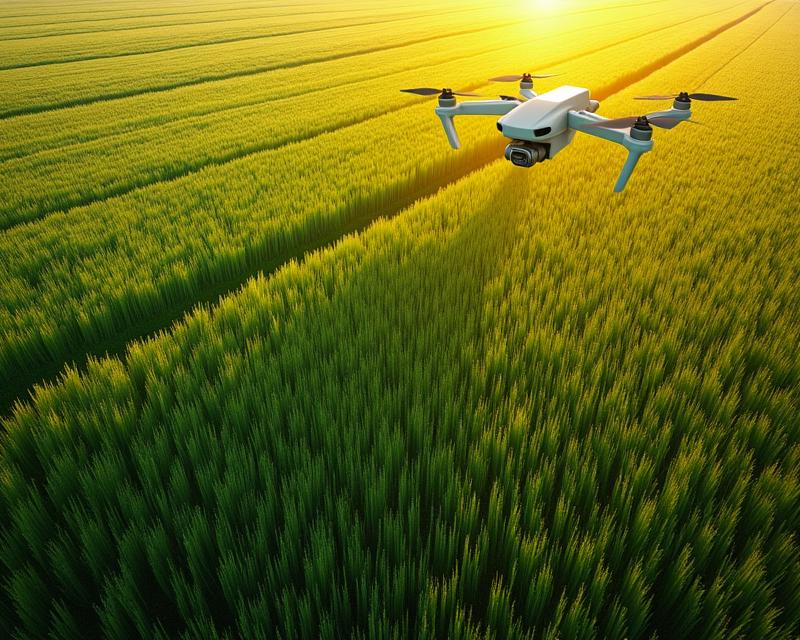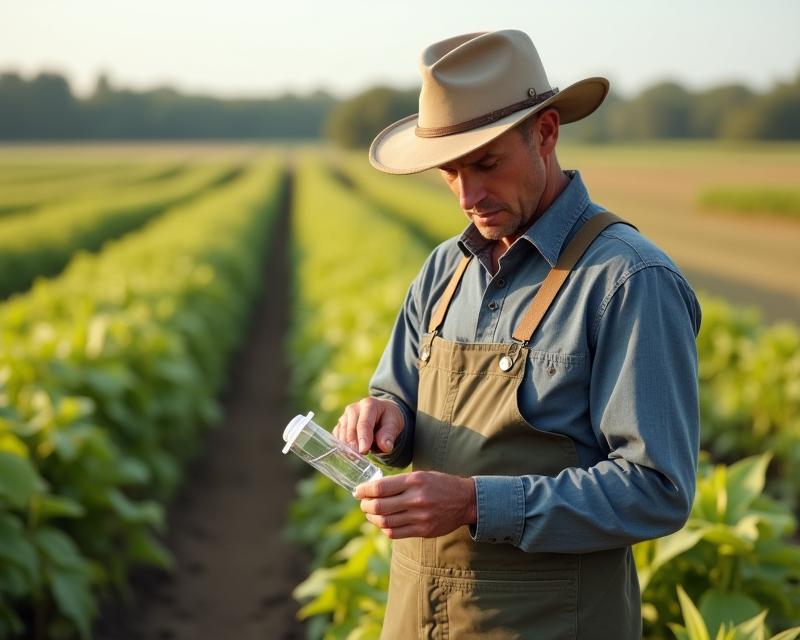Precision Agriculture: Farming's Future
Publish in Agriculture el 28/06/2025 22:17
Precision Agriculture: Farming's Future
The agricultural landscape is rapidly evolving, and at the forefront of this transformation is precision agriculture. This innovative approach utilizes technology to optimize farming practices, leading to increased efficiency, reduced waste, and improved yields. Gone are the days of blanket applications of fertilizers and pesticides. Today's farmers are leveraging data and technology to make informed decisions, resulting in a more sustainable and profitable future for agriculture.

What is Precision Agriculture?
Precision agriculture, also known as site-specific crop management, involves using a variety of tools and techniques to monitor and manage variations within a field. This includes GPS technology, sensors, drones, and data analytics. Farmers can gather detailed information about soil conditions, crop health, and weather patterns in real-time. This allows them to tailor their inputs – like water, fertilizer, and pesticides – to the specific needs of different areas within the field, rather than applying them uniformly.
Key Technologies Driving Change
Several key technologies are driving the precision agriculture revolution. GPS-guided tractors ensure accurate planting and application of inputs. Drones and satellites provide aerial imagery for crop monitoring and identifying areas of stress. Soil sensors measure moisture levels, nutrient content, and other vital parameters. Variable rate applicators adjust the amount of inputs based on real-time data. Furthermore, sophisticated data analytics platforms process the vast amounts of information collected, providing farmers with actionable insights to optimize their operations.
Benefits of Adopting Precision Agriculture
The benefits of precision agriculture are numerous. Increased yields are a primary advantage, as crops receive precisely what they need, when they need it. Reduced input costs result from minimizing waste and optimizing resource utilization. Environmental sustainability is enhanced by reducing the overuse of fertilizers and pesticides, minimizing runoff and protecting water quality. Finally, precision agriculture empowers farmers with data-driven insights, enabling them to make more informed decisions and improve their overall farm management. As technology continues to advance, precision agriculture will play an increasingly vital role in feeding a growing global population while minimizing environmental impact.





